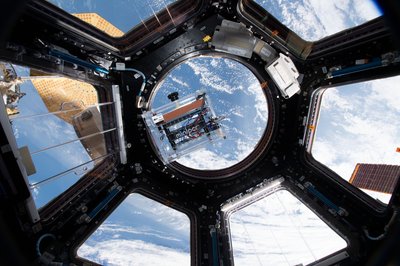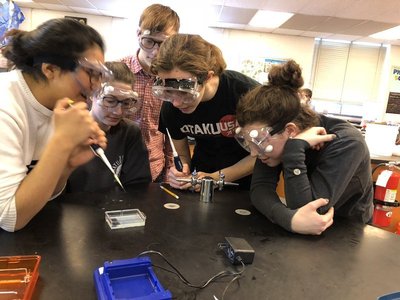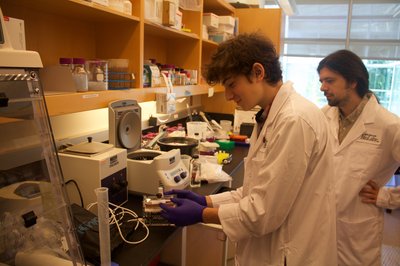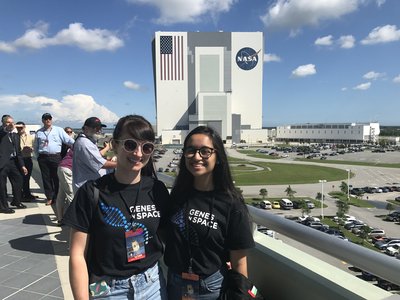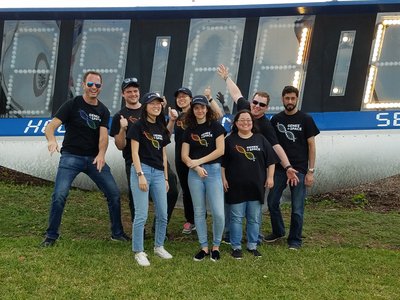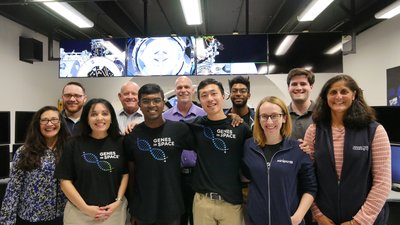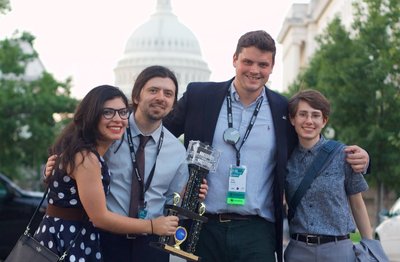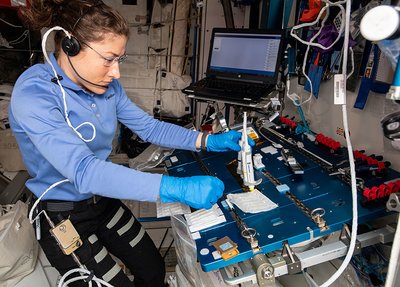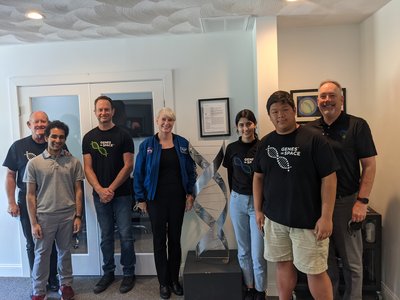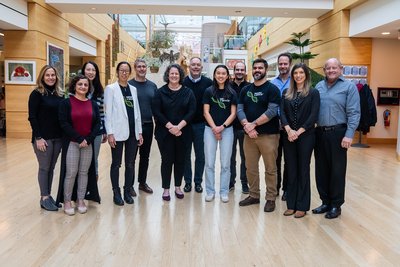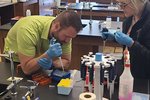Celebrating Ten Years of Genes in Space
In 2014, the ISS National Laboratory and The Boeing Company partnered to sponsor the MassChallenge "Technology in Space Prize", a yearly competition to support entrepreneurial use of the International Space Station for bold, innovative research. That year, Boeing's Scott Copeland and Kevin Foley met Dr. Sebastian Kraves and Dr. Ezequiel Alvarez-Saavedra of miniPCR bio as part of the MassChallenge startup accelerator cohort. Together, they saw the potential of enabling DNA research in space by bringing a small, easy-to-use PCR thermal cycler to the International Space Station.
Before directed research could be conducted in space, PCR had to be proven feasible in microgravity. The four co-founders decided to put that task in the hands of students, and thus, the first Genes in Space competition was born.
This year marks the tenth anniversary of the founding of Genes in Space and the first decade of molecular biology research in space. Below is a look at the impact of the Genes in Space program by the numbers:
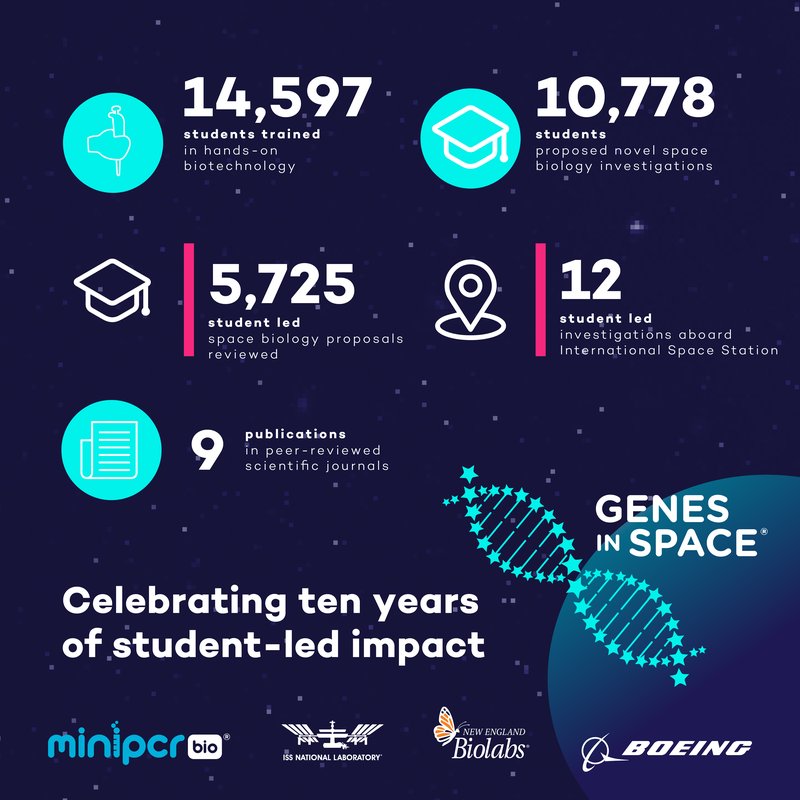
These milestones are built on the passion, dedication, and insight of all of the students who have participated in Genes in Space over the years, along with the educators who have inspired them. Together with our founders at Boeing and miniPCR bio, we wish to extend a heartfelt thank you to our present and past sponsors at New England Biolabs, the ISS National Laboratory, and Math for America.
We look forward to many more years of student-led innovation! On our tenth anniversary, we celebrate your ideas, as they continue to illuminate our understanding of space biology and inform future space missions.

